Israel invades Lebanon and Iran retaliates in major escalation of regional conflict
About 200 ballistic missiles fired towards cities in Israel as the IDF invades southern Lebanon
Israel has vowed revenge after Iran launched a wave of ballistic missiles across the country in a major escalation of the conflict in the Middle East.
A salvo of around 200 ballistic missiles were fired by Tehran less than 24 hours after the Israeli military launched a ground operation against Hezbollah in southern Lebanon.
Millions of people rushed into shelters while outside hundreds of flashes could be seen over the cities of Tel Aviv, Ashdod and Jerusalem as the Iron Dome system intercepted most of the rockets.
The Revolutionary Guards said the attack was in response to the assassination of Hezbollah leader Hassan Nasrallah in Beirut last week. “If [Israel] reacts to Iranian operations,” they warned, “it will face crushing attacks”. The group said it used its hypersonic Fattah missiles, the first time they have been used against Israel.
Israel’s prime minister Benjamin Netanyahu said Iran had “made a big mistake... and will pay for it”, with both US president Joe Biden and Sir Keir Starmer voicing support for the Israel.
US national security adviser Jake Sullivan warned of “severe consequences” after the “significant escalation”.
Just before the missile assault on Israel six people were killed in a suspected terror attack in Tel Aviv. Police said two suspects opened fire on a boulevard in the Jaffa neighbourhood before being shot dead.
As the Iranian missiles were launched, Mr Netanyahu was rushed into a security meeting in a secure bunker near Jerusalem to plan a response to the massive onslaught, officials said.
In a televised message, Mr Netanyahu later told his nation: “Iran made a big mistake tonight – and it will pay for it.
“The regime in Iran does not understand our determination to defend ourselves and our determination to retaliate against our enemies.”
Israel Defence Forces spokesperson, Rear Admiral Daniel Hagari, said the attack had resulted in a “small number of hits”, with the majority of missiles intercepted.
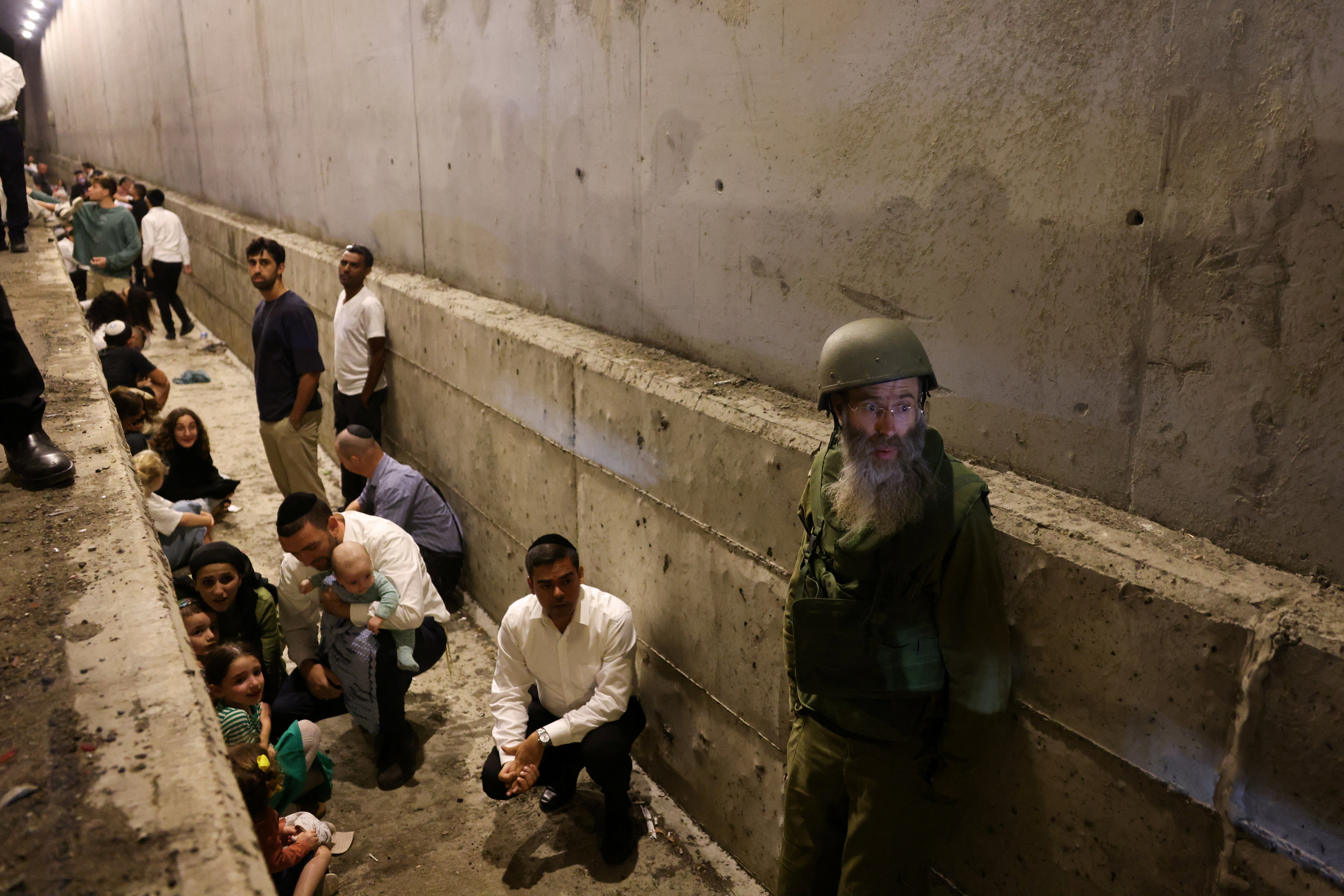
“We will respond wherever, whenever, and however we choose, in accordance with the directive of the government of Israel,” he said.
The attack left the prospect of a direct war between Israel and Iran, with the two countries having fought a shadow war for years. On Tuesday night, Sir Keir said he was “deeply concerned” that the Middle East was “on the brink”.
In a televised statement from Downing Street, the prime minister said Tehran had “menaced the Middle East for far too long” and called on the country to “stop these attacks”.
“We stand with Israel and we recognise her right to self-defence in the face of this aggression,” he said.
Mr Biden told reporters that the Iranian attack had apepared to have been “defeated and ineffective”.
“Make no mistake, the United States is fully, fully, fully supportive of Israel,” Mr Biden said. US officials revealed that US destroyers in the eastern Mediterranean had destroyed several Iranian missiles.
UK forces had also “played their part” in attempts to prevent further violence, UK defence sectretary John Healey said.
Images that emerged from the attack on Israel showed parents clinging onto their children as they huddled in bomb shelters across Israel. Other images showed civilians crying as they fled from the orange flashes of air defences colliding with the Iranian missiles overhead.
The attack was over relatively quickly, but caused alarm around the world.
“Our action is concluded unless the Israeli regime decides to invite further retaliation. In that scenario, our response will be stronger and more powerful,” Iranian foreign minister Abbas Araqchi said in a post on X early on Wednesday.
Hezbollah had already fired at Tel Aviv earlier on Tuesday as senior White House officials warned that an Iranian attack was “imminent”. Those attacks caused limited damage but forced Israel to announce new restrictions on public gatherings and closed beaches, reducing the number of people that can meet to 30 outdoors and 300 indoors.
The Iranian attack came hours after the Israeli military said it carried out “targeted” raids against dozens of Hezbollah positions in southern Lebanon, the area of the country controlled by the group, as part of what it described as the “next phase” of its war aimed at neutralising the Iran-backed group.
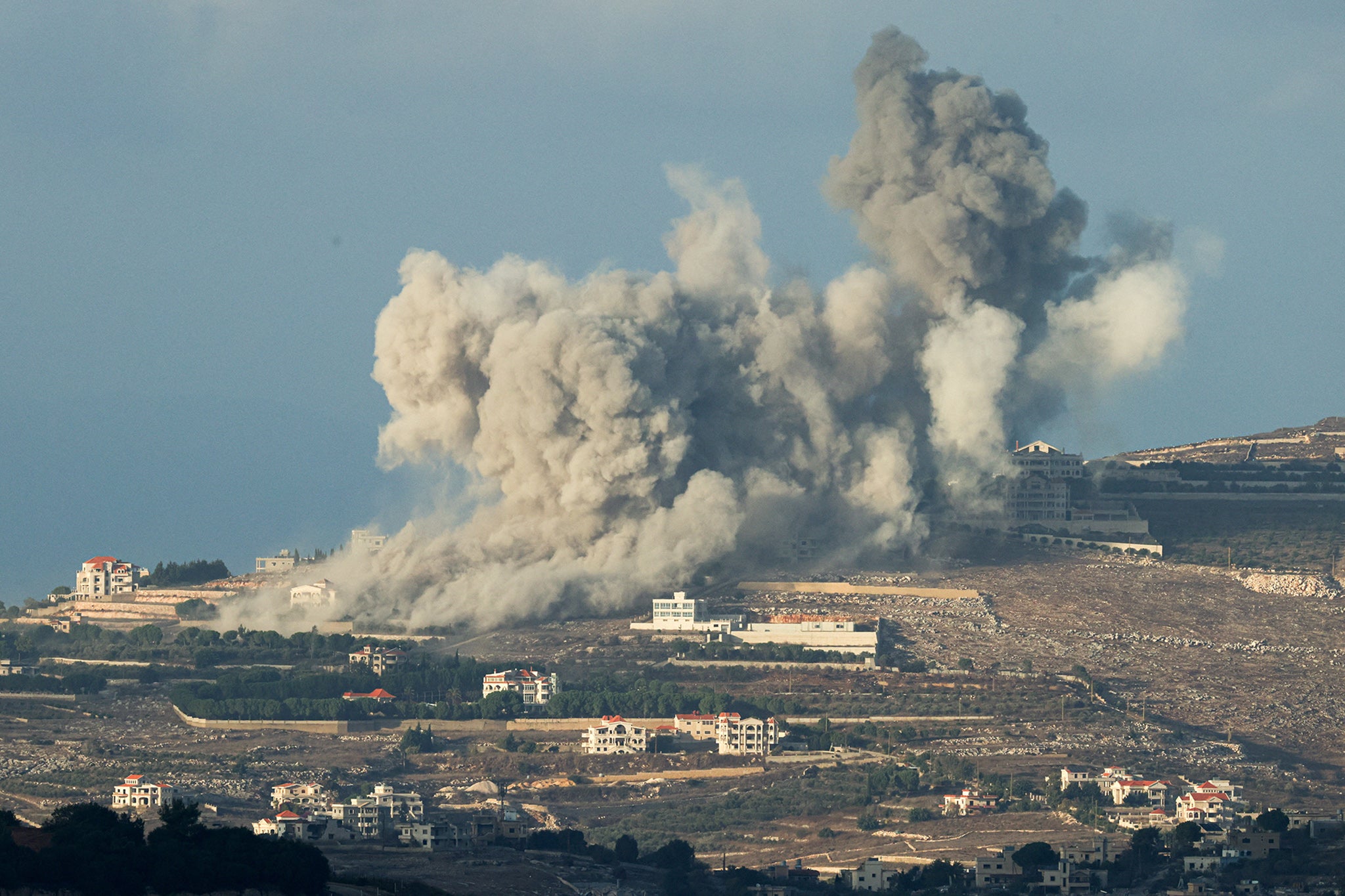
Israel’s incursion into Lebanon is the first since the month-long all-out war with Hezbollah in 2006, and the fourth time they have invaded their neighbour since Israel’s creation more than 75 years ago.
Columns of Israeli tanks and infantry fighting vehicles were seen positioned on its northern border on Tuesday as airstrikes smashed into the hilly landscape of Lebanon’s southern region and the suburbs of Beirut.
While in other times Hezbollah would have been all around the city offering assistance to the displaced, now every aspect of the party seems to have gone underground.
On Tuesday afternoon, new strikes hit a building in a residential neighbourhood of Beirut.
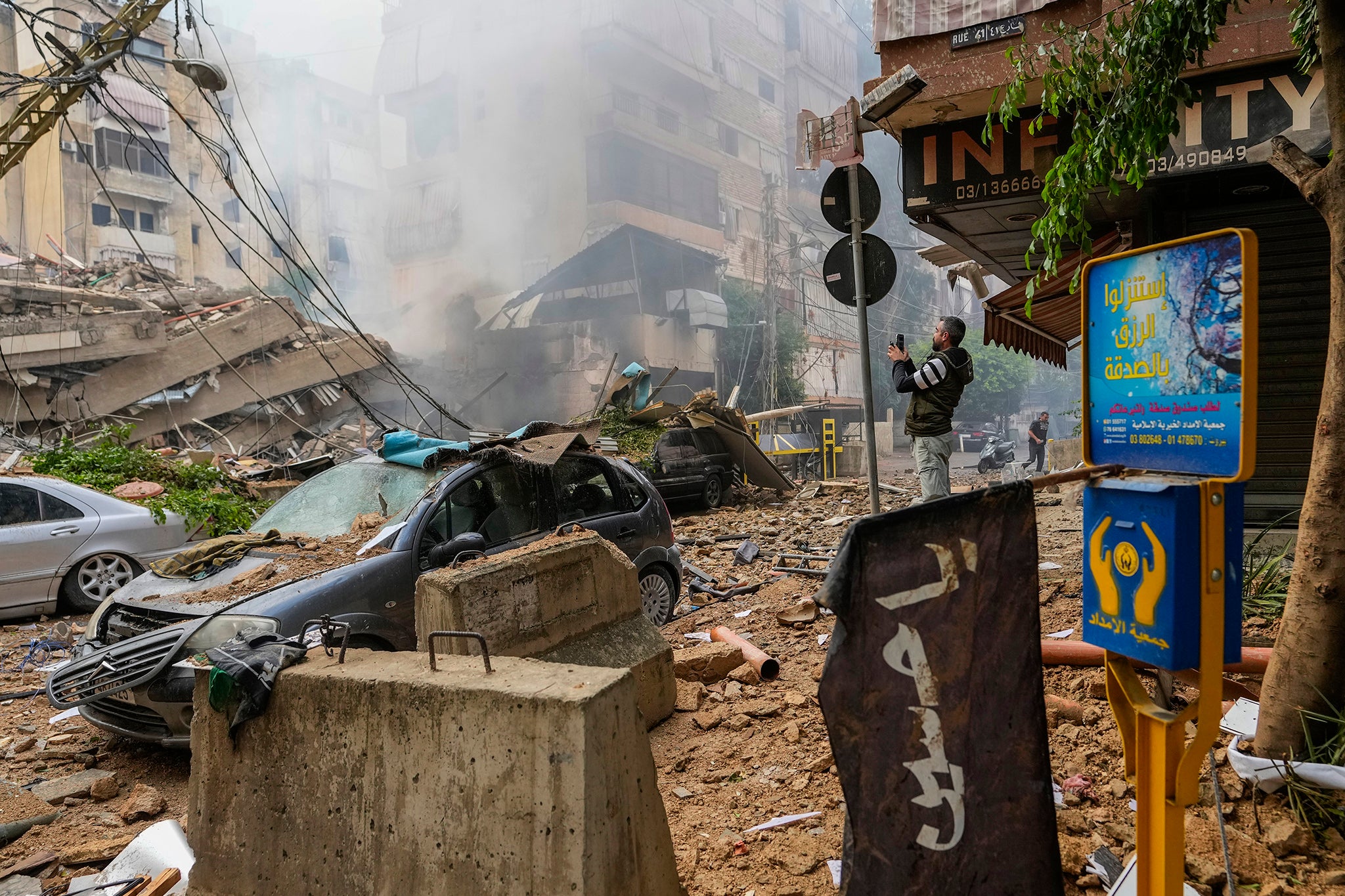
More than 1,000 people in Lebanon, from the southwestern city of Tyre, up to the capital of Beirut further north and across the country in the Bekaa Valley, have already been killed during a fortnight of Israeli airstrikes that ultimately presaged their invasion. More than a million citizens have also been displaced as they fled the inbound Israeli troops.
Israeli military spokespeople said the attacks were limited to within only a few miles inside Lebanon and would not involve an assault on Beirut, though at least four additional brigades were mobilised to the north ahead of future cross-border incursions.
They added, in a declassified report, that Israeli special forces had already conducted dozens of raids into Lebanon over the past year to destroy Hezbollah capabilities.
Rear Admiral Hagari, who posted the report on X, formerly Twitter, added that the United Nations Security Council resolution that ended the last Israel-Hezbollah war in 2006 had not been enforced and that southern Lebanon was now “swarming with Hezbollah terrorists and weapons”.
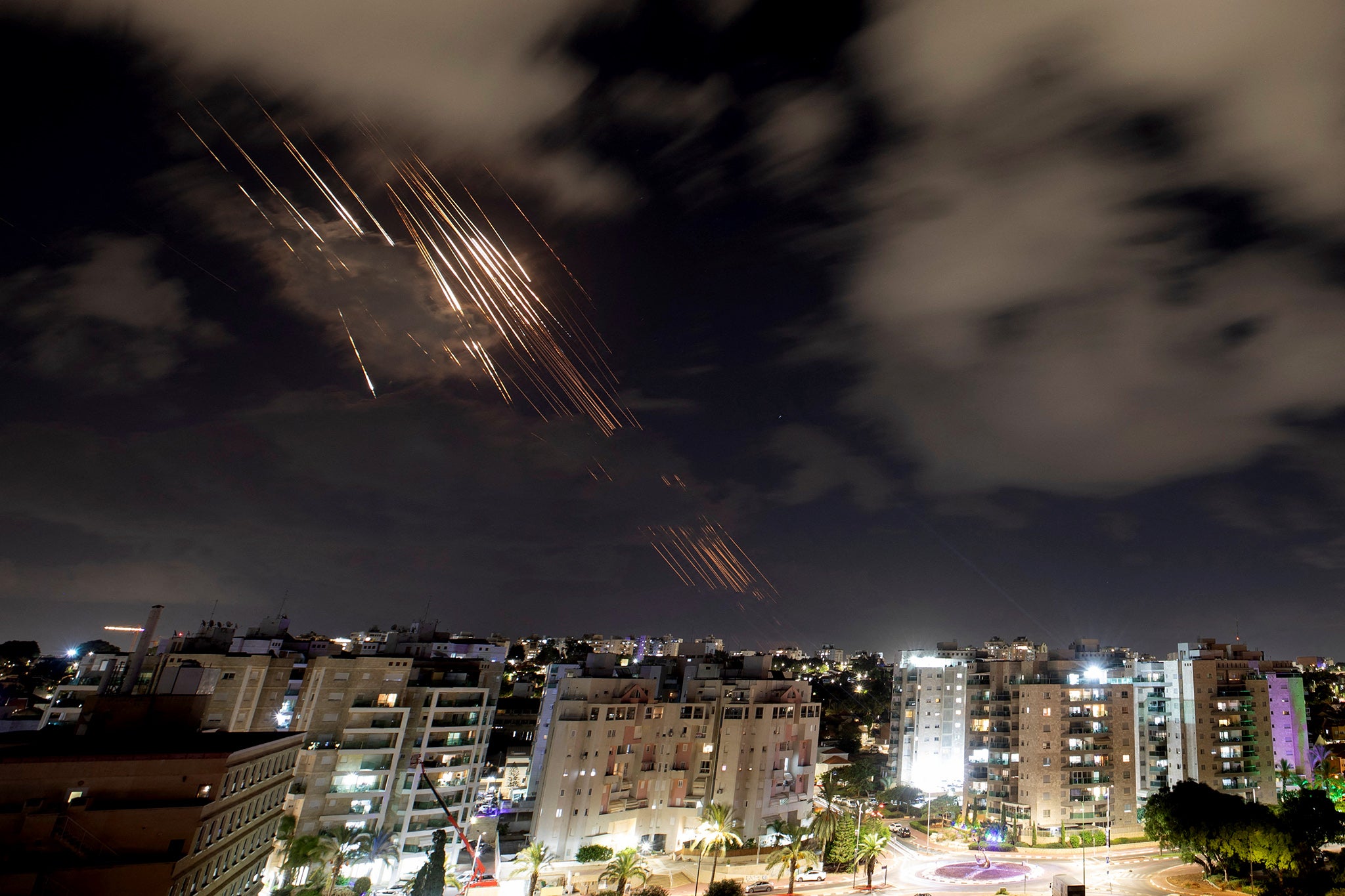
Among the hundreds of sites the special forces raided, Israeli military officials said they discovered stores of heavy weaponry, including RPGs, anti-tank missiles and assault rifles.
Hezbollah started its military campaign after Israel launched its offensive in Gaza following the 7 October attack by Hamas which killed roughly 1,000 people and led to 251 more being taken hostage, around half of which remain in Gaza.
Israel’s retaliatory air and ground assault in Gaza has killed at least 41,600 people, according to the latest update from the local Hamas-run health ministry, and led to more than 90 per cent of the enclave’s population being displaced. In the latest round of strikes, at least 37 people were killed after the Israeli military said it had been targeting command centres used by Hamas. They included a refugee camp in the centre of the enclave and a school in the northern Gaza City.
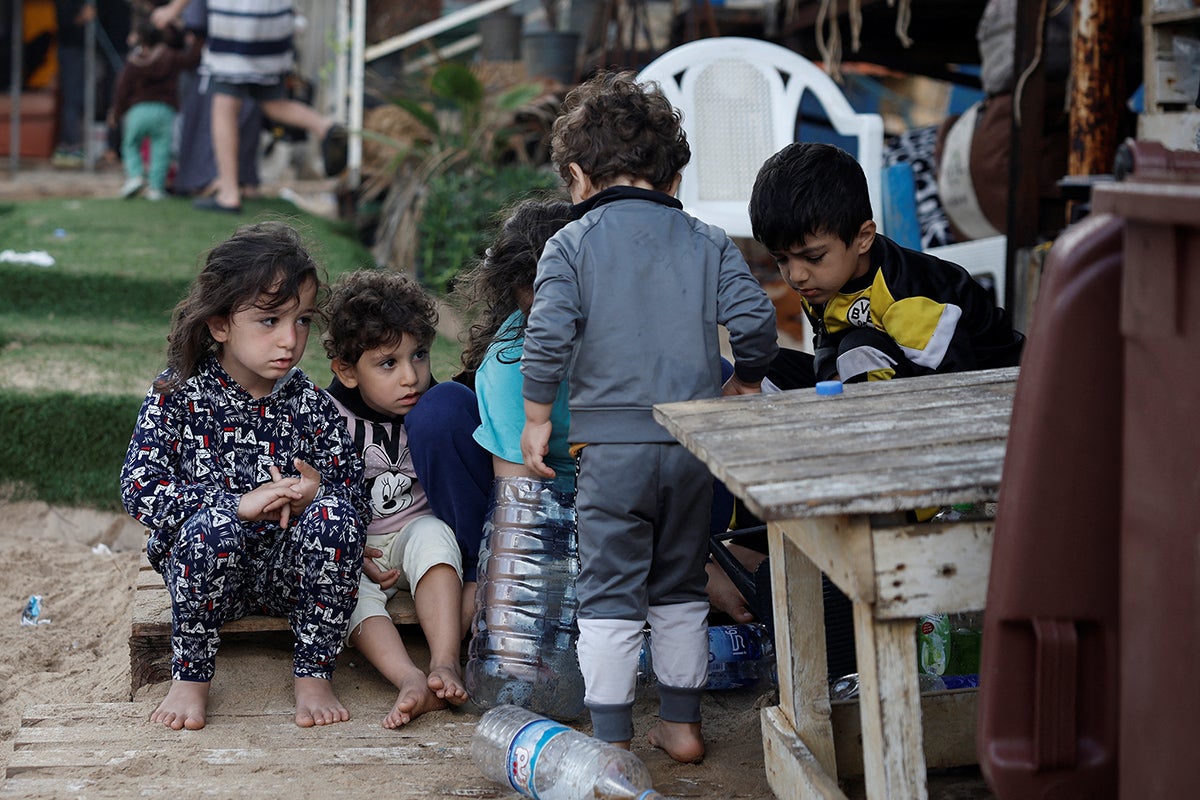
More than 60,000 Israeli residents in its northern territories were evacuated in the immediate aftermath of the Hamas attack last year. As Hezbollah vowed to attack Israel until it ceased its operation in Gaza, in what it claims is a solidarity act with its ally Hamas and the Palestinian people, the northern residents have been unable to return.
But last week, while Israeli missiles and rockets rained down on Lebanon, Israel added the return of those citizens to its core war aims. It says its latest invasion is key to achieving that objective.
It had been hoped that US, Qatar and Egypt-led efforts to broker a ceasefire between Israel and Hamas could stave off the possibility of an escalated conflict in Lebanon. Mr Biden and his French counterpart Emmanuel Macron also attempted to broker a ceasefire between Israel and Lebanon last week.
Join our commenting forum
Join thought-provoking conversations, follow other Independent readers and see their replies
Comments
Bookmark popover
Removed from bookmarks